It was once said that hockey was played by men with an iron will and murderous determination. Real hockey players never showed fear or vulnerability, or weakness. Ever.
Not only that, but hockey heroes didn’t suffer from mental health issues and, if they did, they dealt with their pain in secret, self-medicating through alcohol and/or painkillers. Suicide and drug overdoses claimed the lives of NHLers living in mental torment and were rarely acknowledged except by grieving family members. In keeping with the hockey ethos, these stories best lay forgotten and untold.
Nobody really knows how many NHL players over the decades fell victim to mental health problems. Yet, in the last decade, players and their families have started to shine a light on the issue.
Derek Boogard and CTE
One of the first issues to come to light in the NHL was chronic traumatic encephalopathy (CTE), a neurodegenerative disease linked to repeated blows to the head. The story of Derek Boogaard, a 6-foot-7, 265-pound giant who earned his living with his fists playing for the Minnesota Wild and the New York Rangers is the best known example of the devastation wrought by the condition.
Wildly popular with fans in Minneapolis and The Big Apple, Boogaard suffered repeated concussions and countless punches to his head from other tough guys in the league. To deal with his injuries, team doctors prescribed him a steady stream of Percocet, Vicodin and OxyContin. On top of that, he spent thousands of dollars purchasing the same drugs from street dealers, washing it all down with an endless supply of booze.
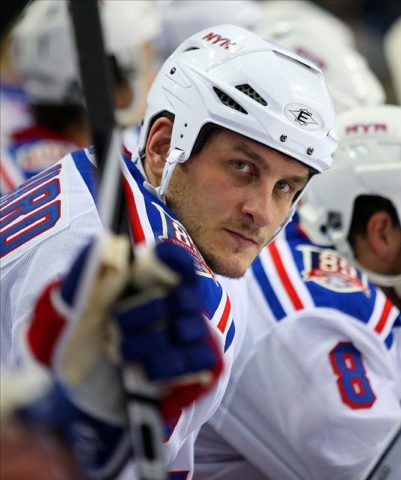
In May 2011, at just 28 years old, Boogaard died alone in his New York apartment. The cause of death was an overdose of oxycodone and alcohol, used to cope with depression. He kept his problems to himself because of the stigma against mental illness, and seeking help for depression may have cost him his job.
An autopsy revealed that he suffered from CTE that was more advanced than Bob Probert’s, the former NHL enforcer with a terrible substance abuse problem who had recently died at age 45. Had Boogaard lived to Probert’s age, doctors say he likely would have suffered from dementia. Neither player was ever treated for their CTE, depression or addiction.
Related: War on Ice: The Chilling Truth of Enforcers, CTE and Fighting in the NHL
After Boogaard’s death came the suicide of Vancouver Canucks brawler Rick Rypien who suffered from depression. Shortly after that, Wade Belak – a fierce fighter who also suffered from the disorder and admittedly took “happy pills” – was found dead in a Toronto hotel room a few blocks from the Air Canada Centre (now the Rogers Centre) where he had played for the Toronto Maple Leafs.
Pushback from the Old Guard
The deaths of three NHL enforcers in four months, who all suffered from depression, shocked the hockey world in 2011. Many questioned the risks faced by the league’s enforcers and whether they should remain part of the game. The NHL was also criticized for not doing enough to address the long-term mental health problems caused by concussions.
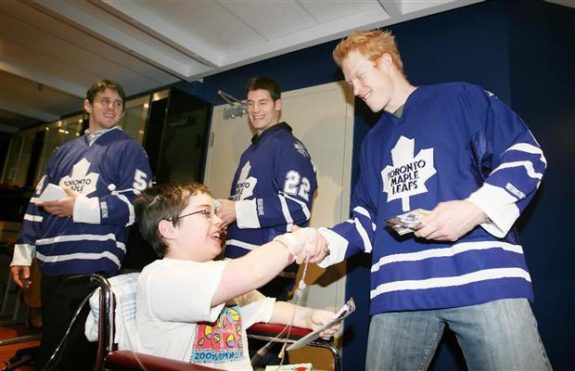
Defenders of the game’s pugilistic tradition condemned this as heresy. Georges Laraque, an NHL enforcer for over 10 years, argued that he never liked the job and that other former tough guys drank to deal with having to fight every game. However, Don Cherry, the bombastic former Hockey Night in Canada personality called them “a bunch of pukes”. How, he argued, could they question fighting when that was how they had earned their living.
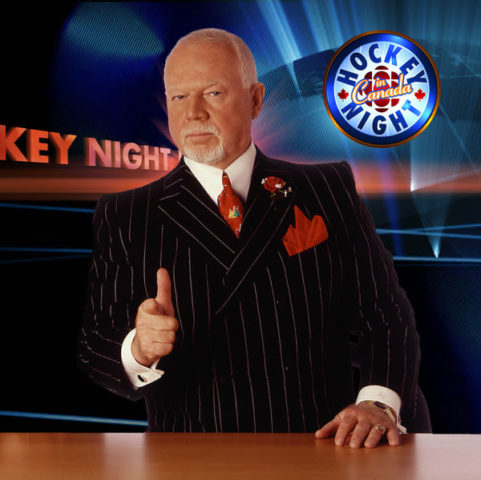
The NHL responded by questioning the link between CTE and the careers of the league’s fighters. They vigorously defended a lawsuit filed by Boogaard’s parents seeking compensation for what they considered was the league’s role in their son’s death.
The Floodgates Open
Soon, however, it wasn’t just the way the league handled CTE and concussions that was getting attention. In 2016, to honour Rypien’s memory, the Vancouver Canucks established the Hockey Talks program to try to break the stigma about mental health issues.
Since then, the team and the Canucks for Kids Fund have donated more than $650,000 toward mental health programming in British Columbia. The program also sponsors the Balancing Our Mind youth summits aimed at supporting student wellness, building mental health literacy, breaking down stigmas, encouraging early help-seeking and connecting students to appropriate mental health resources.
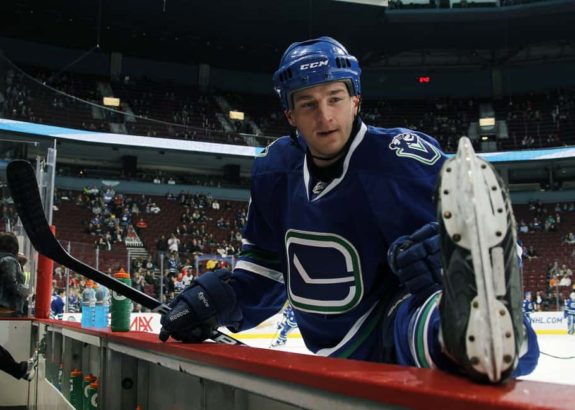
Not only that, but the team supported the #HockeyTalks social media campaign raising awareness of mental health issues and encouraging the public to share their stories.
The rest of the league’s Canadian franchises soon followed Vancouver’s lead, and now, 11 American franchises are participating in the program. Some of the initiatives include in-arena messaging, online storytelling and sharing experiences during a designated game night for mental health.
Much Progress on Mental Health Since Boogaard’s Death
Here are the stories of a few NHL players who have spoken publicly about their mental health challenges. Fortunately for them, the game, and the rest of us, they can do so without facing the stigma that prevented Boogaard and others from seeking the help they needed.
Tyler Motte – Vancouver Canucks
In January 2020, Canucks’ left-winger Tyler Motte shot a video for the Canucks’ annual Hockey Talks conference in which he explained his struggles with depression and anxiety. More recently he spoke with Sportsnet’s Ken Reid about these challenges.
Motte has become a champion for removing the stigma surrounding mental illness. He characterizes it as an injury and says that admitting the problem is not a sign of weakness but rather strength.
Colin Wilson – Colorado Avalanche
Now 31 years old, Wilson played 11 seasons in the NHL with the Nashville Predators and the Colorado Avalanche. He retired on January 5, 2021, to deal with Obsessive-Compulsive Disorder (OCD), the problems with alcohol and prescribed drugs that the disorder caused, and his struggle recovering from hip surgery. In an article for the Players’ Tribune, Wilson explained that “there is simply no way to overstate the impact it’s (OCD) had on my career and on my life. It controlled me, it almost broke me for good.”
The Predators became aware of his OCD when the team’s assistant general manager observed Wilson’s rituals before boarding a team flight. He would clean up the waiting area, putting every piece of trash in nearby garbage cans, ensured that he was always the last one on the plane, and he always had to talk to the pilot. It was only then that he believed it was safe to fly.
He spoke of how he obsessed over injuries on and off the ice, and every shift he played, he believed he would get hurt. He felt his skates were never tied properly and remained in the dressing room before games and practices to tie and retie them as tightly as he could until his hands bled. He never felt that his skates fit him properly, describing them as like stilts..
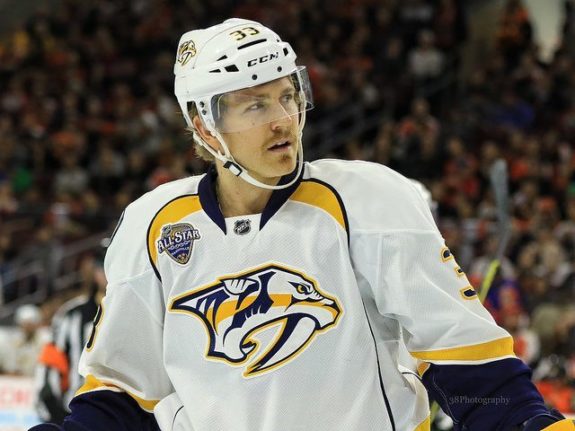
Wilson said he was in a constant state of panic and played for years in “flight or fight” mode. He said he was like a petrified animal in a corner. This was made worse by insomnia.
In the three years before he sought help for OCD, he needed Xanax and Seroquel prescribed by team doctors to help him sleep, alternating between the two drugs, one getting him high and the other knocking him out. To deal with the pressure of professional hockey, he combined pills with alcohol.
Wilson summed up his situation: “Those pills had been prescribed to me to help me. But they didn’t do that at all. They made me lose myself. The stressors I had – the OCD, the lack of sleep, the pressure of playoff hockey – those pills just seemed to amplify all that and drive me to a place I never wanted to go.”
In Nashville, he began seeking help after hitting what he called “rock bottom” during the Predators’ 2017 Stanley Cup Final series against the Pittsburgh Penguins. He was traded to the Avalanche at the end of the season and continued seeking help and finally contacted the NHL Players’ Association (NHLPA) who connected him with an OCD specialist.
Because of therapy, Wilson began to understand that “one of the key steps in the healing process is not only acknowledging that what’s going on in your brain isn’t normal, but also, more importantly, acknowledging that it isn’t your fault.”
Now, he continues with therapy, is sober, and back at school in Boston working on a psychology degree. He is involved in a venture in Austin, Texas, offering alternative medicines and approaches to mental health issues, including OCD.
Robin Lehner – Vegas Golden Knights
Six-foot-four Swedish goaltender Robin Lehner, now playing for the Vegas Golden Knights, has been diagnosed with bipolar disorder, attention deficit hyperactivity disorder (ADHD) and post-traumatic stress disorder (PTSD). He also struggled with alcohol and drug addiction before getting help during the 2018 offseason.
Lehner’s mental health challenges did not prevent him from becoming one of the best goalies in the league. He won the William M. Jennings Trophy for the fewest goals allowed in a season and was a runner up for the Vezina Trophy as the league’s top goaltender in 2019. What is astonishing is that Lehner said, “I never had a sober season of hockey in my entire career” until he sought help (from “Islander goalie Robin Lehner opens up about his addiction and bipolar disorder” The Athletic, 13/09/2018). It’s hard not to wonder how much better he might have played had he not had to battle these demons.
The award Lehner might value the most is the 2019 Bill Masterson Memorial Trophy awarded to the player who best exemplifies perseverance, sportsmanship and dedication to hockey. In an emotional acceptance speech, he said, “I’m not ashamed to say I’m mentally ill, but that doesn’t mean I’m mentally weak.” Lehner says his mental health issues were complicated by his “childhood experiences of abuse, addiction and mental illness. Growing up was a seemingly endless wave of horrible violations.”
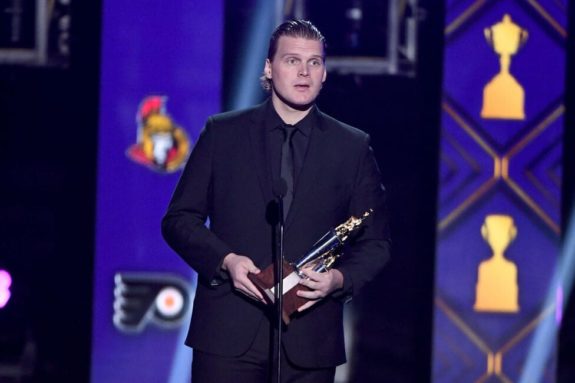
As he explained it, neither of the two teams he played for in his first eight years in the NHL – the Ottawa Senators and the Buffalo Sabres – “was aware of my need to drink or to take sleeping pills until I would pass out. I could not stand to be alone in my brain at night time.” He elaborated, “When I was hypomanic and in a good mood I was a solid goalie. In the depressive state, not so much.”
What drove Lehner to seek help was hitting rock bottom on March 28, 2018. While defending the Sabres’ net against the Detroit Red Wings, he suffered a full-blown panic attack and could finish the third period. He said his brain just exploded and he broke down in the dressing room.
Nevertheless, he stopped on the way home for beer and drank himself to sleep that night, but not before he told his wife, “I have to go away.” That was the moment he took the first step toward getting help. In the morning, he called the NHL/NHL Players’ Association (NHLPA) Substance Abuse and Behavioural program (SABH), who soon had him on a plane headed to a rehabilitation centre in Arizona.
After the Sabres moved on from Lehner in the summer of 2018, the New York Islanders resurrected his career with a one-year, $1.5 million contract for the 2018-19 season. He never looked back, and in October 2020, the Golden Knights signed him to a $25 million, five-year contract extension.
Lehner says every day is a battle, but, “It is time to take the ‘crazy person’ stamp from bipolar disorder. I am working hard to become the latest to battle this unfair stigma.”
Bobby Ryan – Detroit Red Wings
Ryan has been very open about his problems with alcohol. A veteran of 14 seasons in the NHL with the Anaheim Ducks and the Senators, the talented winger is now a scoring leader for the Red Wings.
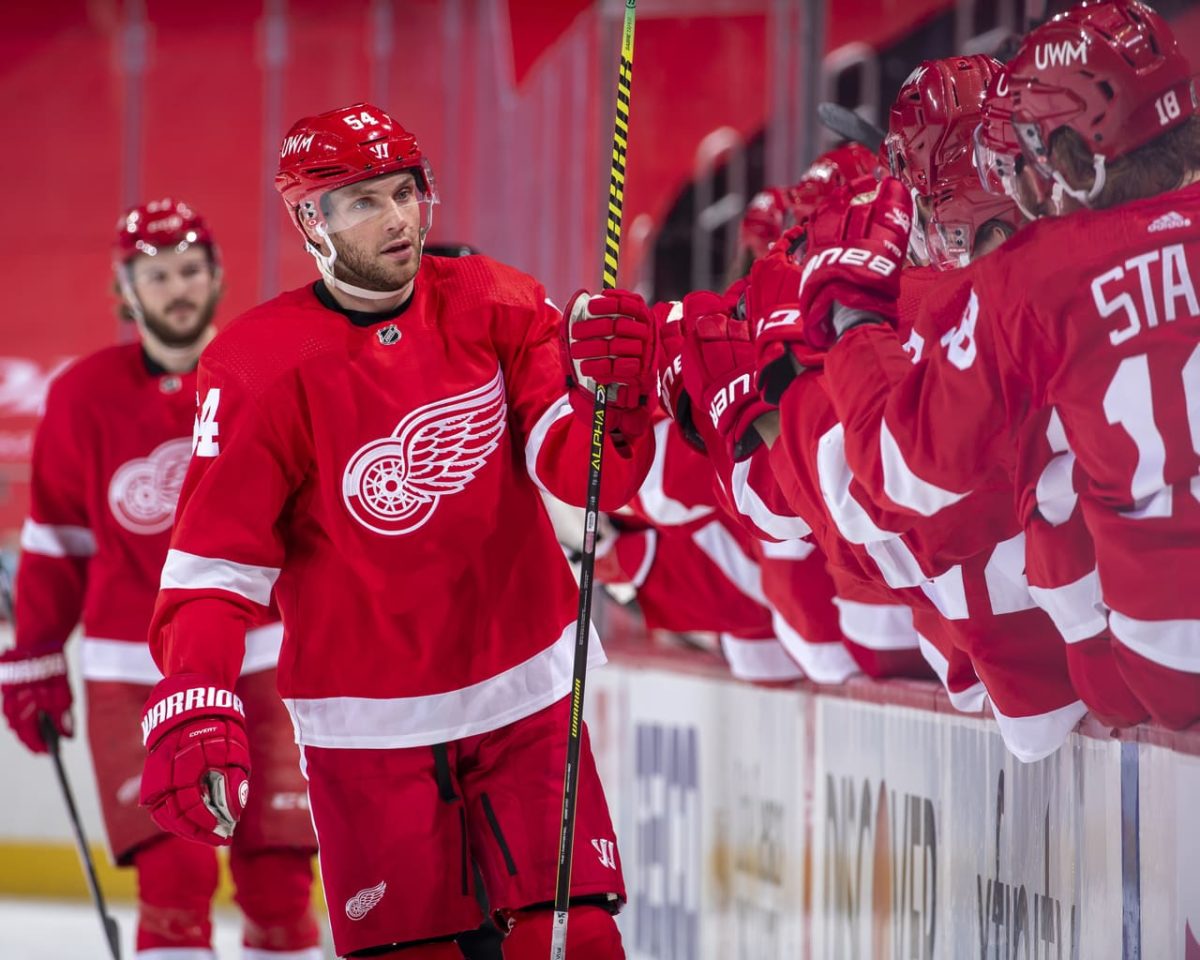
Ryan hasn’t had it easy. As a boy, he witnessed his father almost beat his mother to death, after which time, the family fled New Jersey, eventually settling in California, to escape the attempted murder charges that had been laid against his father. In California, his father supported the family and Ryan’s hockey development as a professional gambler. The experience left scars (from ‘Enough is enough’: Bobby Ryan opens up about his recovery from alcohol abuse,” The Athletic, 21/02/2020).
In November 2019, Ryan entered the SABH program to seek help for alcohol abuse. The problem was longstanding and one that he tried to solve on his own without success. He explained, “I had a lot of times where I woke up in the morning just overridden with guilt, shame and saying, ‘I would do it,’ (get sober), and doing it for 12 days then messing up again. It had no good ending.”
Ryan knew that entering the program during the 2019-20 season was sure to be made public, but said, “I got to a point where I just said enough is enough of this. Of the shame and the guilt and not being the person you need to be for your family.”
In speaking openly of his struggles with alcohol, Ryan joins a growing list of players who want to see an end to the secrecy and stigma associated with substance abuse. Asked whether by going public he felt he could be a role model for others, he said, “Well, I’d rather be a role model for other reasons, obviously, but that is a silver lining for me.”
Grading the NHL On Mental Health
While the NHL has not accepted a link between concussions and CTE and the associated mental health problems, it has adopted the Concussion Evaluation and Management Protocol and taken some steps to reduce the number of concussions in the league by cracking down on head shots. While the league hasn’t banned fighting, it is becoming less frequent, and the number of enforcers seems to decrease each season.
Related: NHL Beginning to Raise Mental Health Awareness
In 2018, the NHL reached an out-of-court settlement in a Minnesota class action lawsuit totaling $18.9 million filed by 30 retired players who claimed the NHL failed to protect them from head injuries or warn them of the risks involved in their profession. The league did not acknowledge liability. Similarly, the NFL has spent years denying liability for head injuries. However, it made a much larger settlement with some 20,000 retired players and set aside $1.5 billion over 65 years to deal with similar claims.
Concussions have turned into a public relations disaster for the NFL, which the league tried to address by adopting concussion protocols and prohibiting certain types of hits. The issue is proving bad for long-term business, given the downward trend in football registration among young players. Hockey is seeing the same trend, and it’s believed that one of the reasons is that parents are worried about the risk of concussions.
The NHL has had the SABH program since 1996, and it is funded jointly by the NHL and the NHLPA. Players now refer to it as “The Program,” and while many use it confidentially, others have made a point of praising the program publicly and acknowledging the problems for which they sought help.
Lehner said, “I cannot say enough about the NHLPA/NHL substance abuse program. I don’t think I would be alive without them. Dan Cronin, Dave Lewis and Dr. Shaw have done so many amazing things for my family and me during this time. They were out visiting me every week to make sure I was OK. They check on me all the time on the phone. I owe them so much.”
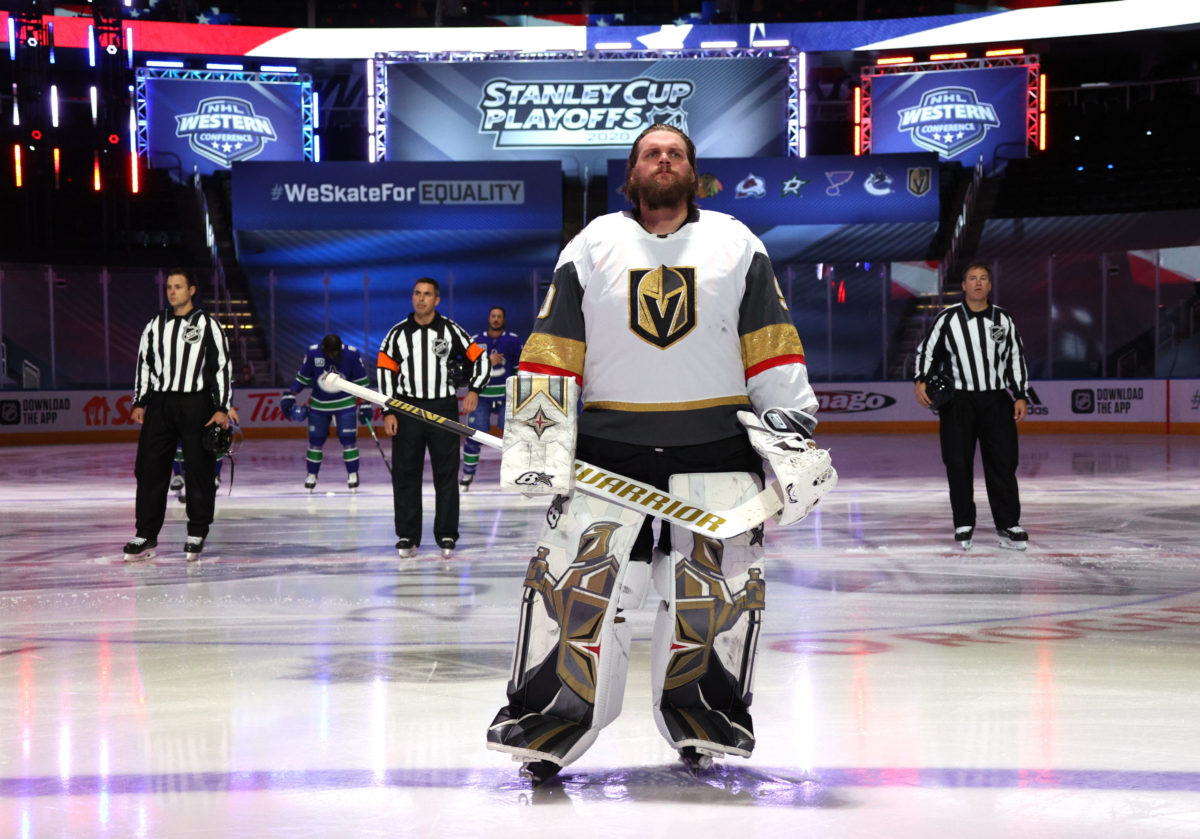
It is not clear how the NHL’s SABH stacks up against those of other professional sports leagues. The NFL has the Total Wellness Platform for players. The NFL and NBA Players’ Associations employ mental health professionals. Major League Baseball (MLB) requires each of its franchises to have at least one employee assistance professional to provide counseling. The MLB Players’ Association has board-certified psychiatrists on staff.
Most professional sports seem to be acknowledging that some of the mental health issues suffered by elite athletes may be related to injury, overtraining, burnout, and the pressure to perform. Like any business, sports should have a vested interest in ensuring their employees are healthy physically and mentally.
The Way Ahead
Just as other businesses are trying to help their employees deal with mental health issues and make it possible for them to bring them out into the open, so is the NHL. We can expect more stories about players taking on their mental health problems with the support of the league and the NHLPA. Creating an environment in which players can do that is not only good for business, but it’s human decency.